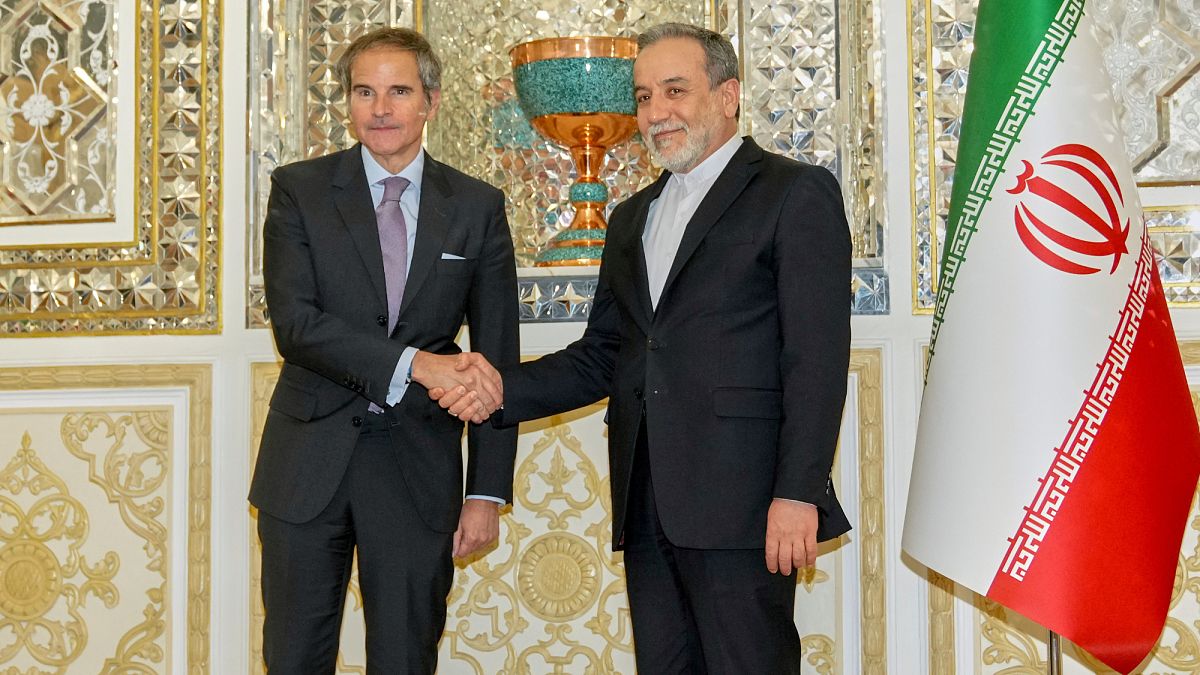Published on •Updated
The foreign ministers of France, Germany, and the United Kingdom – collectively known as the E3 – will meet with Iranian Foreign Minister Abbas Araghchi in Geneva to discuss Iran’s nuclear program in Geneva on Friday.
While the EU has historically played a key role in negotiations with Iran, it seems unlikely to participate in the formal talks.
When asked by Euronews whether EU foreign policy chief Kaja Kallas would participate in the talks, a European Commission spokesperson gave no clear confirmation.
“We have always expressed our openness to dialogue and negotiation. When such dialogue occurs, we will inform you,” the spokesperson said, leaving open the possibility of a last-minute invitation.
Before the E3-Iran meeting, the European ministers are expected to meet with Kallas at Germany’s permanent mission in Geneva however – a move that highlights the EU’s continued efforts to coordinate and facilitate diplomacy, even if indirectly.
A historical role, diminished
Brussels has long played a central role in the Iran nuclear negotiations, particularly through the High Representative for Foreign Affairs in the broader EU+3 format – which once included other countries such as the United States, Russia and China.
Under the 2015 Joint Comprehensive Plan of Action (JCPOA), the UN-brokered nuclear agreement aimed at lifting sanctions in exchange for Iran’s compliance with nuclear obligations, the EU served as a key facilitator and guardian of the agreement’s implementation.
Under the previous administration of US President Donald Trump, Washington pulled out of the JCPOA.
The upcoming talks are expected to revive dialogue in light of the escalating conflict and persuade Iran to provide credible guarantees that its nuclear program remains exclusively civilian in nature.
However, the influence of the European parties has waned in recent months. The last E3-Iran meeting was held in January, shortly before Trump assumed office.
Subsequent indirect US-Iran talks, brokered by Oman, failed to yield results, with the sixth planned round cancelled after the Israeli military strikes on Iran.
The EU’s ambition
Although not directly involved this time, the EU has played a behind-the-scenes role as a diplomatic facilitator, attempting to bridge divides among European countries and even between Europe and the US.
The EU’s presence in the talks has visibly diminished since the tenure of former High Representative Federica Mogherini, who was a prominent architect and staunch defender of the 2015 deal.
Despite its limited visibility, the EU hopes that its coordinating efforts can still shape the outcome of the talks or at least keep the door open for renewed multilateral diplomacy on Iran’s nuclear file.

